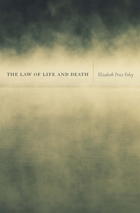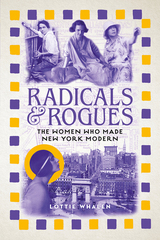
Are you alive? What makes you so sure? Most people believe this question has a clear answer—that some law defines our status as living (or not) for all purposes. But they are dead wrong. In this pioneering study, Elizabeth Price Foley examines the many, and surprisingly ambiguous, legal definitions of what counts as human life and death.
Foley reveals that “not being dead” is not necessarily the same as being alive, in the eyes of the law. People, pre-viable fetuses, and post-viable fetuses have different sets of legal rights, which explains the law's seemingly inconsistent approach to stem cell research, in vitro fertilization, frozen embryos, in utero embryos, contraception, abortion, homicide, and wrongful death.
In a detailed analysis that is sure to be controversial, Foley shows how the need for more organ transplants and the need to conserve health care resources are exerting steady pressure to expand the legal definition of death. As a result, death is being declared faster than ever before. The "right to die," Foley worries, may be morphing slowly into an obligation to die.
Foley’s balanced, accessible chapters explore the most contentious legal issues of our time—including cryogenics, feticide, abortion, physician-assisted suicide, brain death, vegetative and minimally conscious states, informed consent, and advance directives—across constitutional, contract, tort, property, and criminal law. Ultimately, she suggests, the inconsistencies and ambiguities in U.S. laws governing life and death may be culturally, and perhaps even psychologically, necessary for an enormous and diverse country like ours.

Just what is a human being? Who counts? The answers to these questions are crucial when one is faced with the ethical issue of taking human life. In this affirmation of the intrinsic personal dignity and inviolability of every human individual, John Kavanaugh, S. J., denies that it can ever be moral to intentionally kill another.
Today in every corner of the world men and women are willing to kill others in the name of "realism" and under the guise of race, class, quality of life, sex, property, nationalism, security, or religion. We justify these killings by either excluding certain humans from our definition of personhood or by invoking a greater good or more pressing value.
Kavanaugh contends that neither alternative is acceptable. He formulates an ethics that opposes the intentional killing not only of medically "marginal" humans but also of depersonalized or criminalized enemies. Offering a philosophy of the person that embraces the undeveloped, the wounded, and the dying, he proposes ways to recover a personal ethical stance in a global society that increasingly devalues the individual.
Kavanaugh discusses the work of a range of philosophers, artists, and activists from Richard Rorty and Søren Kierkegaard to Albert Camus and Woody Allen, from Mother Teresa to Jack Kevorkian. His approach is in stark contrast to that of writer Peter Singer and others who believe that not all human life has intrinsic moral worth. It will challenge philosophers, students of ethics, and anyone concerned about the depersonalization of contemporary life.
READERS
Browse our collection.
PUBLISHERS
See BiblioVault's publisher services.
STUDENT SERVICES
Files for college accessibility offices.
UChicago Accessibility Resources
home | accessibility | search | about | contact us
BiblioVault ® 2001 - 2024
The University of Chicago Press









